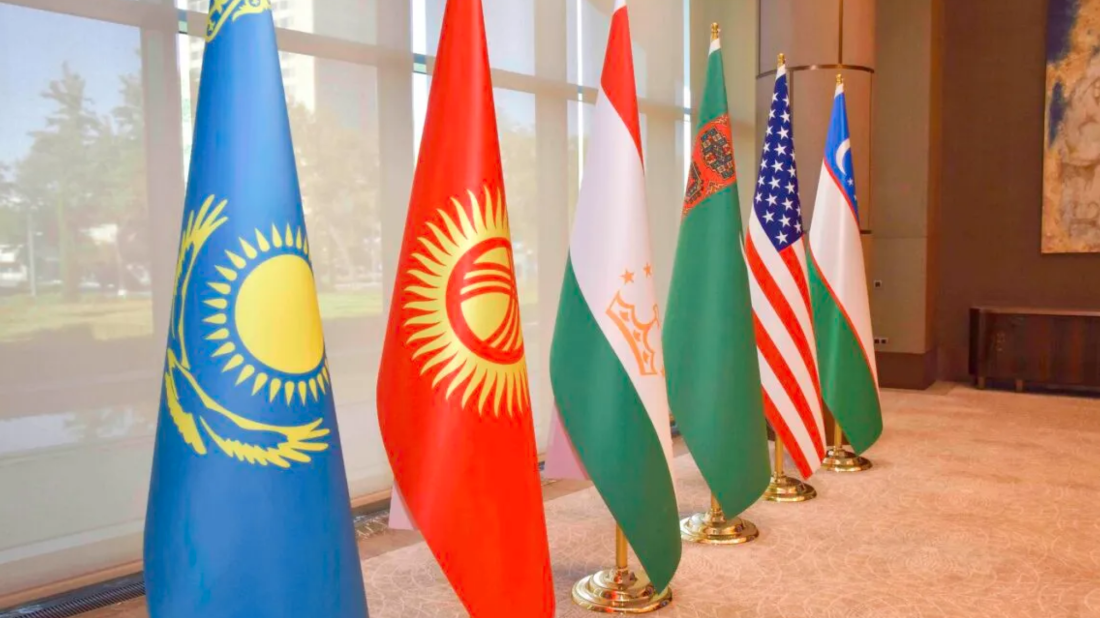Four killed in Israeli drone strike near Lebanese-Syrian border
...

Central Asia’s growing relevance in the global critical minerals supply chain took center stage at the U.S.–Central Asia Forum hosted by the Atlantic Council’s Eurasia Center on June 4.
As geopolitical tensions reshape trade alliances, policymakers and industry leaders emphasized the region's potential to become a key U.S. partner in securing vital raw materials essential for energy transition and national security.
Andrew D’Anieri of the Atlantic Council called it “an opportune time to do more in the region,” citing strong growth forecasts and increased geopolitical independence among Central Asian states. World Bank projections show Kazakhstan, Kyrgyzstan, Tajikistan, and Uzbekistan poised for 5–7% growth in 2025, with Turkmenistan slightly lower at 2.3%.
U.S. Senator Steve Daines (R-Montana), who has visited all five Central Asian republics, stressed widespread regional enthusiasm for deeper ties with Washington. He also called for the removal of outdated barriers like the Jackson-Vanik amendment that still affects U.S. trade with Kazakhstan.
Kazakhstan’s Ambassador to the U.S., Yerzhan Ashikbayev, emphasized the country’s role as a global mining leader, producing 20 of the 50 U.S.-listed critical minerals—eight of which the U.S. is entirely import-dependent on. “Kazakhstan aims to play a vital role in strengthening global supply chain resilience,” he said, citing abundant reserves, midstream processing capacity, and political stability.
However, Ashikbayev criticized legislative hurdles such as lack of free trade status, EV tax credit exclusion, and the “foreign entities of concern” classification, which penalizes Kazakhstan for its proximity to China and Russia. “It’s outrageous,” he said, urging legal reform to unlock investment.
Uzbekistan’s Deputy Chief of Mission, Alisher Akhmedov, echoed the need for greater U.S. engagement, calling critical minerals a central pillar of bilateral cooperation. “This partnership isn’t just about development—it’s about building trust,” he noted.
Former U.S. Assistant Secretary of State Geoffrey Pyatt underscored the urgency of reducing U.S. dependence on adversarial powers in strategic sectors. He pointed to Kazakhstan’s copper and uranium as key to diversifying supply chains, especially with rising demand and security concerns in the civilian nuclear sector.
Reed Blakemore of the Atlantic Council emphasized that infrastructure—electricity, transport, and logistics—is essential for turning resource potential into economic performance. He warned that focusing solely on extraction would leave the U.S. supply chain strategy incomplete.
He also highlighted the Middle Corridor transport route linking Central Asia to Europe via the Caspian Sea as an underutilized asset, noting a 62% increase in freight traffic last year. Kazakhstan aims to double that volume by 2027 and is expanding its rail network and Caspian fleet to support the effort.
The forum concluded with calls for a comprehensive U.S. strategy that goes beyond raw material access to include infrastructure, midstream development, and investment-friendly policy reform—positioning Central Asia not just as a resource provider, but as a strategic partner in global supply chain resilience.
U.S. Ambassador to NATO Matthew Whitaker said China has the power to bring an end to Russia’s war in Ukraine, arguing that Beijing is enabling Moscow’s military campaign.
American figure skating star Ilia Malinin endured a dramatic collapse in the men’s free skate on Friday night, falling twice and tumbling out of medal contention at the Milan Cortina Winter Olympics as Kazakhstan’s Mikhail Shaidorov surged to a surprise gold medal.
Speaking at Munich Security Conference, Ukrainian foreign minister Andrii Sybiha calls for decisive steps ahead of expected Geneva talks
Thousands of fans packed River Plate’s Monumental Stadium in Buenos Aires on Friday for the first of three sold-out concerts by Puerto Rican reggaeton star Bad Bunny, as part of his “Debí Tirar Más Fotos” World Tour.
New Zealand declared a state of emergency in Otorohanga on Saturday (14 February) after torrential rain caused severe flooding, power outages and evacuations.
Medals were awarded in eight disciplines on Sunday as the 2026 Milano-Cortina Winter Olympics continued in Italy.
Hungarian opposition leader Peter Magyar delivered a state of the nation speech in Budapest on Sunday, saying the parliamentary elections in April were an opportunity for his country to take a new direction.
United States prepares for the possibility of sustained, weeks-long military operations against Iran, two U.S. officials told Reuters as the images of the USS Abraham Lincoln carrier strike group sailing and flying in formation were released on Sunday.
The Somali Army carried out a targeted airstrike in southern Somalia, killing 15 al-Shabaab militants, the country’s Defence Ministry said on Sunday.
U.S. Secretary of State Marco Rubio on Sunday (15 February) called it “troubling” a report by five European allies blaming Russia for killing late Kremlin critic Alexei Navalny using a toxin from poison dart frogs.
You can download the AnewZ application from Play Store and the App Store.

What is your opinion on this topic?
Leave the first comment